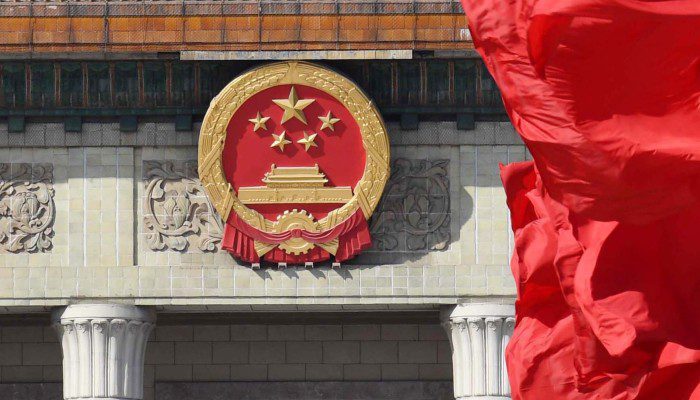China’s strict control of foreign currency exchange makes it necessary to regulate and administer a foreign debt incurred by foreign-invested enterprises (FIEs). Hence, China has mandated the proper management of external debt financing to prevent risks associated with foreign debts.
Have a look at our previous article about Business Risk Management in China
Whether domestic or foreign, a company in China must go through relevant procedures when borrowing funds from outside the country or face some legal consequences. Keep reading to learn more.
Conditions when acquiring foreign debt
A foreign debt refers to overseas borrowings from individuals, banks, companies, or other institutions. According to the provisions set by the State Administration of Foreign Exchange (SAFE) which is responsible for the approval of foreign debts, foreign-invested enterprises should meet certain conditions when borrowing from overseas. These include the following:
- the amount of loan should not exceed the total investment gap against the registered capital;
- foreign shareholders must have fulfilled obligations under the Articles of Association such as registered capital or shares proportion;
- a contribution to the payment of debt must not be collected from the shareholders;
- the amount of actual loan should equal to the shareholder’s capital ratio multiplied by the difference between total investments and registered capital.
The FIE borrower shall prepare a debt contract given that all conditions are met. It should be signed by the debtor and the creditor. The contract should then be submitted to SAFE within 15 working days to register the foreign debt. After registering the contract at SAFE, the said authority will issue the “Form of Contract for Foreign Debts of Domestic Institutions” stamped with the capital account business seal.
Sources of debt overseas
- Foreign governments, international financial organizations or institutions
- Banks and other financial institutions
- Enterprises and individuals
Methods of lending
- Direct loans (including buyer or seller credits by overseas institutions, interbank lending, peer transactions, etc.)
- Debt instruments such as short and medium- or long-term bonds
- Non-resident deposits absorbed by domestic banks, forward letters of credit issued by domestic banks, overseas banks, foreign agent payment, or other debt-type bank trade financing of similar nature
- Financial debts formed by handling withdrawals in physical forms, such as financial leases, debts repaid with cash in compensation trade. etc.
Purpose of foreign debt
- Purchase of goods and services that fall under the business scope
- Debt restructuring: replacing old loans with new loans
- Funding of equity fund investments through the establishment of a new enterprise (should still fall under business scope)
Foreign entities as loan guarantees
FIEs in China commonly apply for foreign-guaranteed domestic loans. This means that they acquire the loan from domestic banks in China using foreign entities as guarantees for the repayment. On the other hand, the following are the qualifications of FIEs to be able to acquire foreign debt.
- Belonging to China’s ‘encouraged’ industry;
- The business has been profitable for the past three years;
- Has sound financial management and internal control systems;
- Has net equity of not less than 15 percent of total capital;
- With total overseas borrowings and remaining guarantees of not more than 50 percent of net capital.
Guidelines for obtaining foreign debt bank accounts
Documents required:
Opening of foreign debt account
- Application form
- Foreign debt registration certificate issued by SAFE
- “Agreement Handling Voucher” with the official seal of the borrower
- Supporting documents
Closing of foreign debt account
- Application form
- Supporting documents
There should be no remaining balance nor withdrawal to occur when closing a foreign debt bank account. Accordingly, this special account must only be used for the deposit and repayment of the foreign debt including interests and/or transfer of funds for the value of fixed assets.
Extension of foreign debt repayment
FIEs who are unable to repay borrowed funds on the prescribed term of the contract may apply for an extension of repayment. The following materials are needed to proceed with the application.
- Extension application form
- Foreign investment filing form
- A copy of the business license and the new contract
- Original debt registration certificate issued by SAFE before
- Latest audit report as necessary
Note that it will be impossible to extend the debt repayment where the original contract cannot be presented. Therefore, it is crucial to ensure the safety of such documents to avoid future problems.
Meanwhile, China also permits debt forgiveness or reduction which also includes repayment of debt through the borrower’s overseas account or conversion of debt to equity.
Legal consequences
According to China’s State Council Order 532, FIEs who violate the rules on the administration of foreign debts will face legal liabilities including penalties and confiscation of illegal gains. The corresponding punishments for compliance failure are listed below.
Failing to register the debt contract
- A warning from the authorities;
- A fine of less than 30 percent of the acquired foreign debt.
Changing the use of borrowed funds without permission
- Confiscation of illegal gains;
- A fine of less than 30 percent of the borrowings;
- If the case is serious, a fine of more than 30 percent of the debt gains.
Violating the rules on repayment and related debt transactions
- Confiscation of illegal gains;
- A fine of RMB 200,000 up to RMB 1,000,000;
- If deemed serious, the FIE will be ordered to stop its business operations.
Key takeaways
FIEs who have lost their foreign debt registration certificates may apply again after making a declaration of loss to the local foreign exchange bureau. Moreover, SAFE authorities allow the cancellation of foreign debt registration given that the account has no outstanding balance and no withdrawals have occurred.
In the event that the FIE has not been able to register the foreign debt contract before the deadline, and therefore, violated the said provisions, the enterprise can still continue to process the registration at the SAFE as long as it can provide a reasonable explanation. Moreover, the enterprise may provide supporting documents for withdrawing the debt funds while the registration has not been processed in time.
Contact us
If you want to know more about doing business in China and urgently need assistance on the settlement of foreign debts, contact us to avail of our specialist services. Moreover, you can take advantage of Kwikdroid, our easy-to-use, 24-hour access company management tool for any type or size of business.
Kwikdroid is a Cloud-based accounting and company solution that will be made available in your workplace in no time.
S.J. Grand also offers Cloud ERP services for your business if you are currently experiencing difficulty in managing your operations amid the COVID-19 pandemic. Check out our IT services page for more details.







